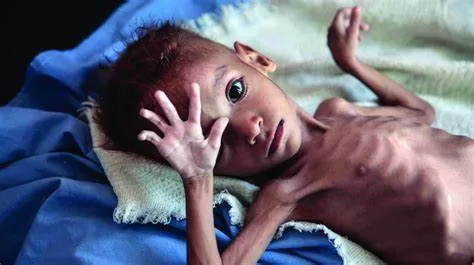At least 77 million – or 1 in 3 – children in the Middle East and North Africa (MENA) have some form of malnutrition, according to the Regional Nutrition Strategic Direction for MENA launched by UNICEF.
The new analysis finds a staggering 55 million children in the region are overweight or obese, with these forms of malnutrition on the rise among school-aged children in all 20 countries in the region. One in three school-aged children and adolescents are living with overweight and obesity, a statement issued by the website of the UNICEF read.
A further 24 million children suffer from undernutrition, including stunting, wasting and thinness. In the past 20 years, progress has been made to reduce the regional prevalence of stunting – or low height for age – which is an indicator of chronic undernutrition in children under 5 years of age. Still, the problem persists at scale, affecting 10 million children under 5 years of age in the region.
“The Middle East and North Africa region is confronting an increasingly complex triple burden of malnutrition that is undermining the growth, development and future potential of its children,” said UNICEF Regional Director for the Middle East and North Africa Adele Khodr.
“Just one-third of young children are receiving the nutritious foods they need to grow, develop and thrive. This is a shocking statistic in 2024 and risks becoming even worse as conflicts, crises and other challenges in our region persist.”
The Regional Strategic Direction for Nutrition in MENA groups the 20 countries in the region into four ‘clusters’ and outlines strategic approaches to addressing the nutrition challenges in each.
“The face of malnutrition looks vastly different across the region,” added Khodr. “And so, we must address the underlying drivers of all forms of malnutrition according to each country’s context. With this strategic direction, UNICEF outlines how it intends to do this by the end of the decade to help ensure national food systems are strong and sustainable, quality nutrition services are within reach, and nutritious foods are available and affordable for every child – no matter who they are or where they live.”
UNICEF calls on governments to prioritize nutrition in their national development plans, policies, and budgets. UNICEF will continue supporting countries as they collect critical maternal and child nutrition data to enhance action and program delivery. We must scale up efforts to prevent and treat all forms of malnutrition and ensure the right of every child to nutritious food and diets.






Discussion about this post